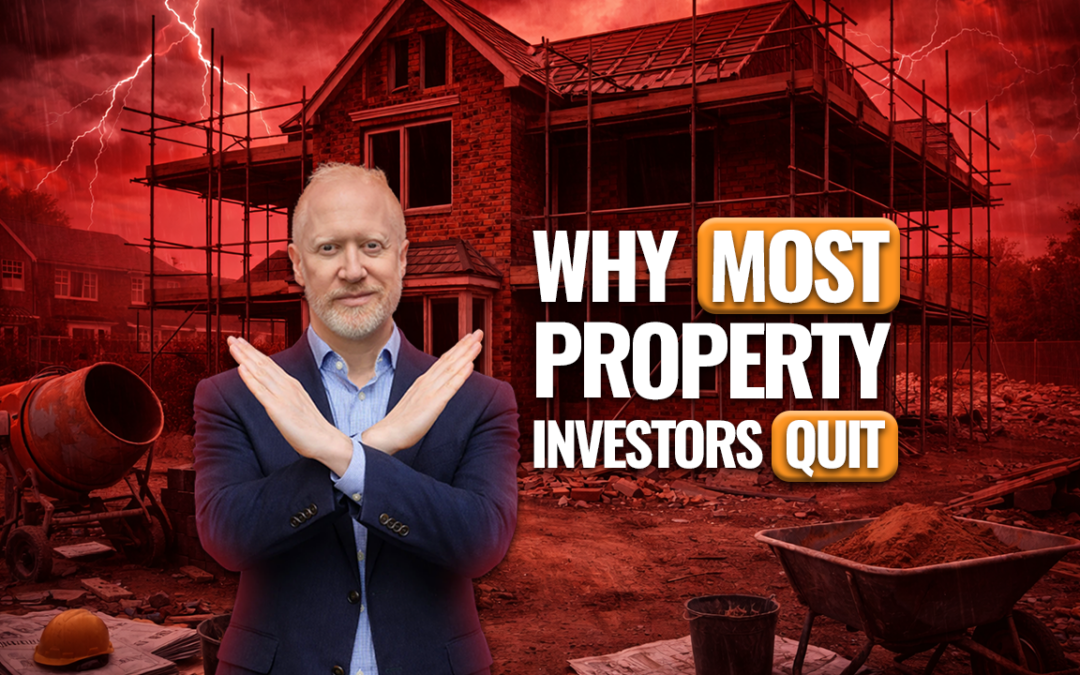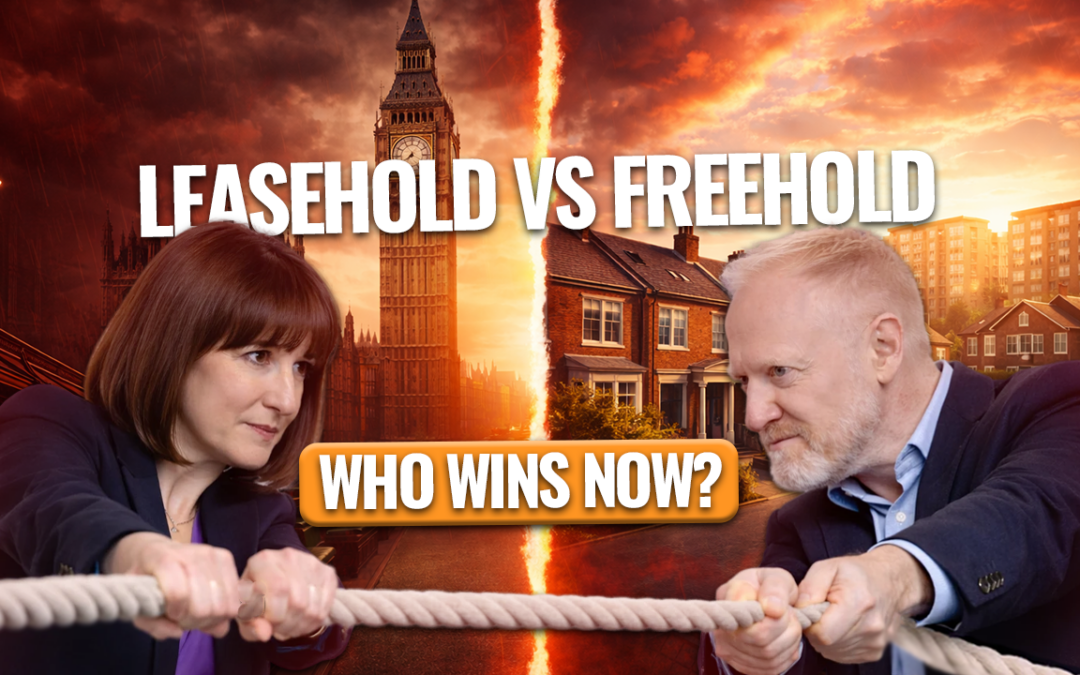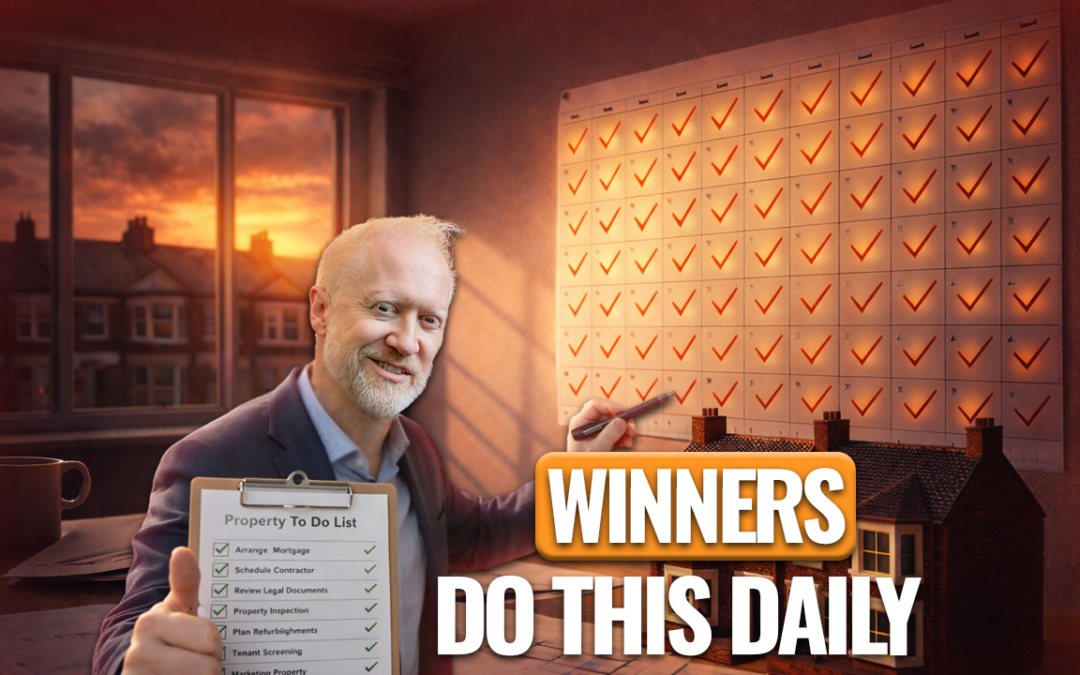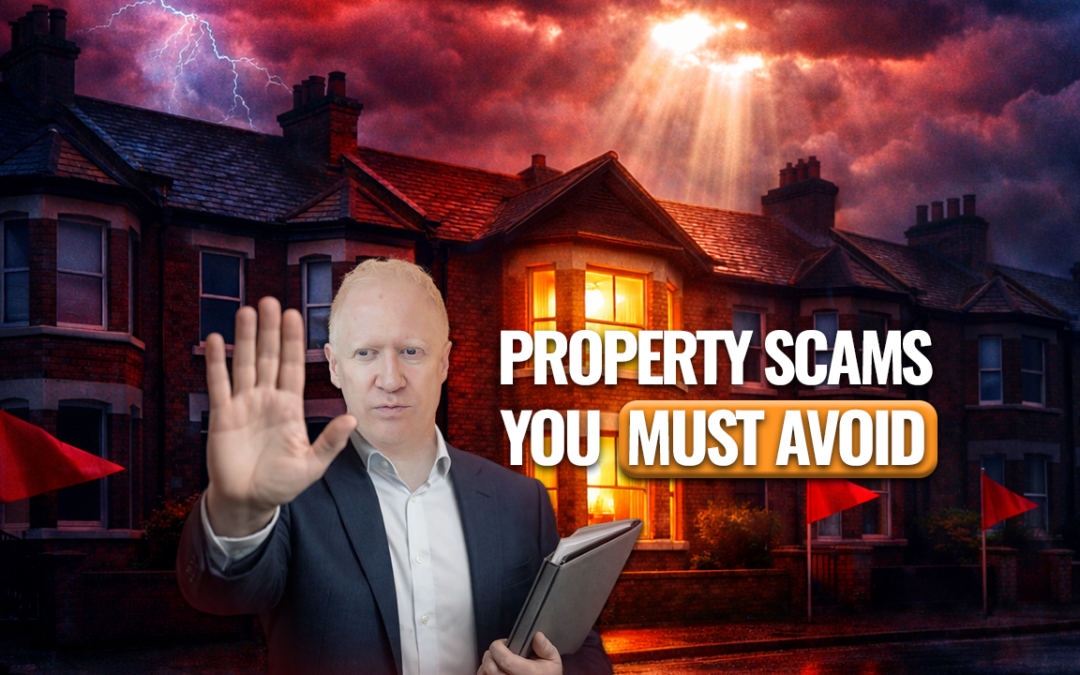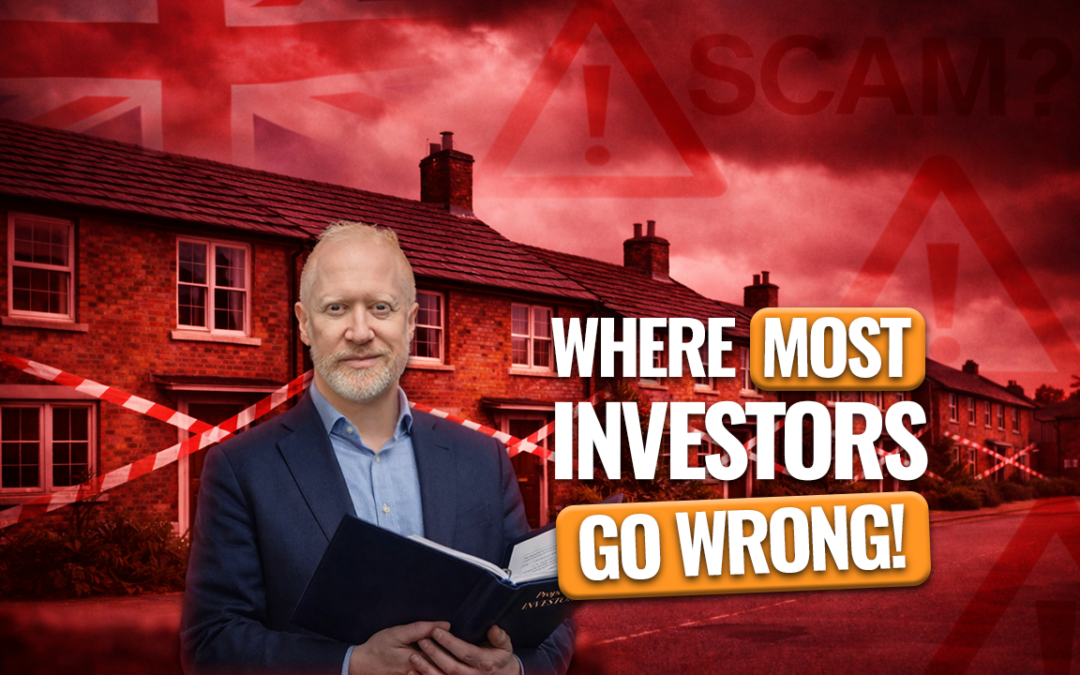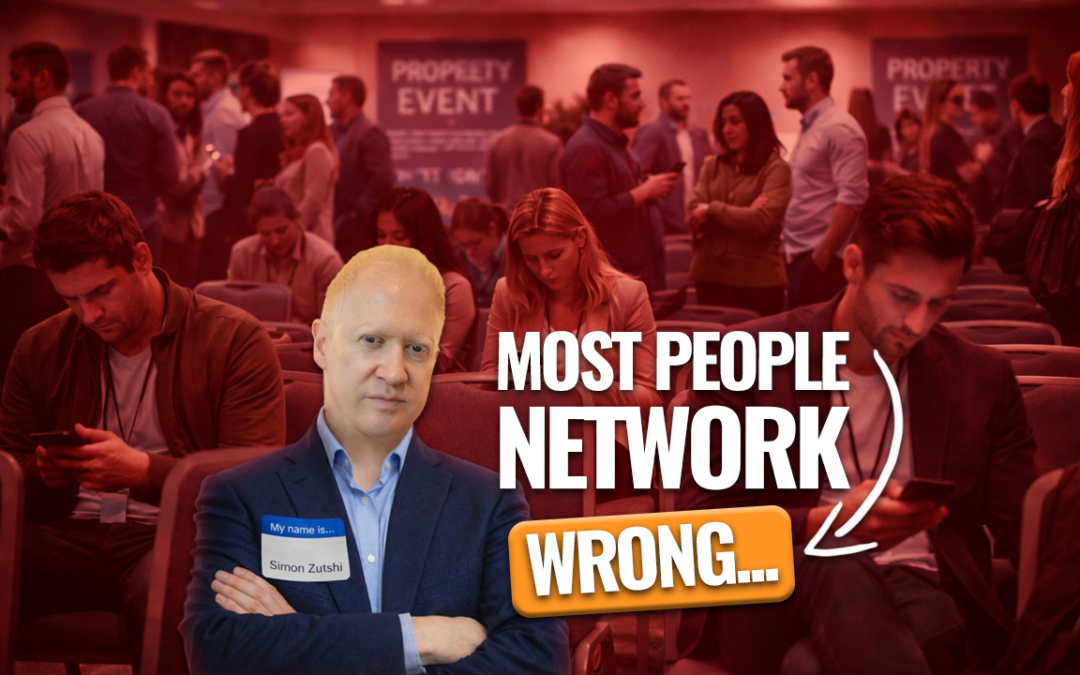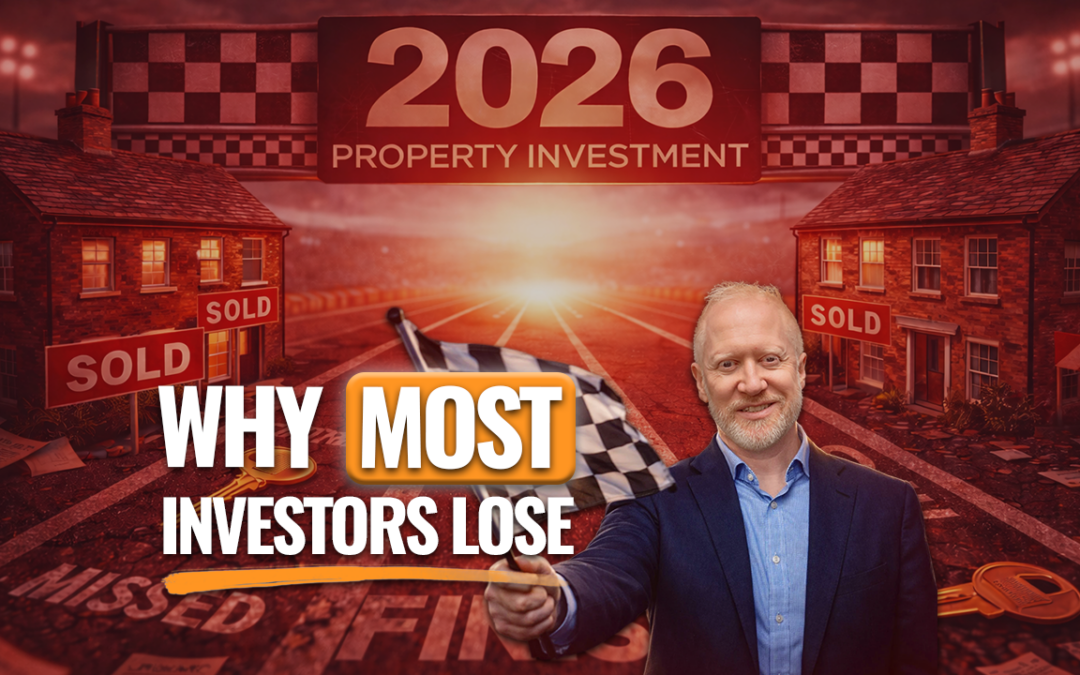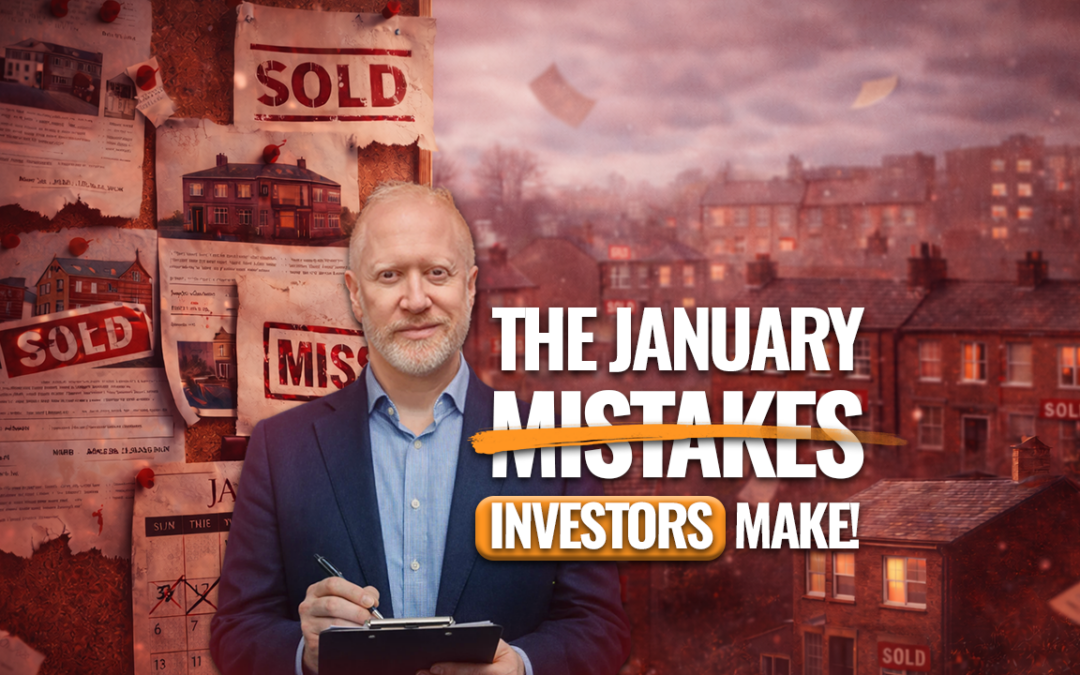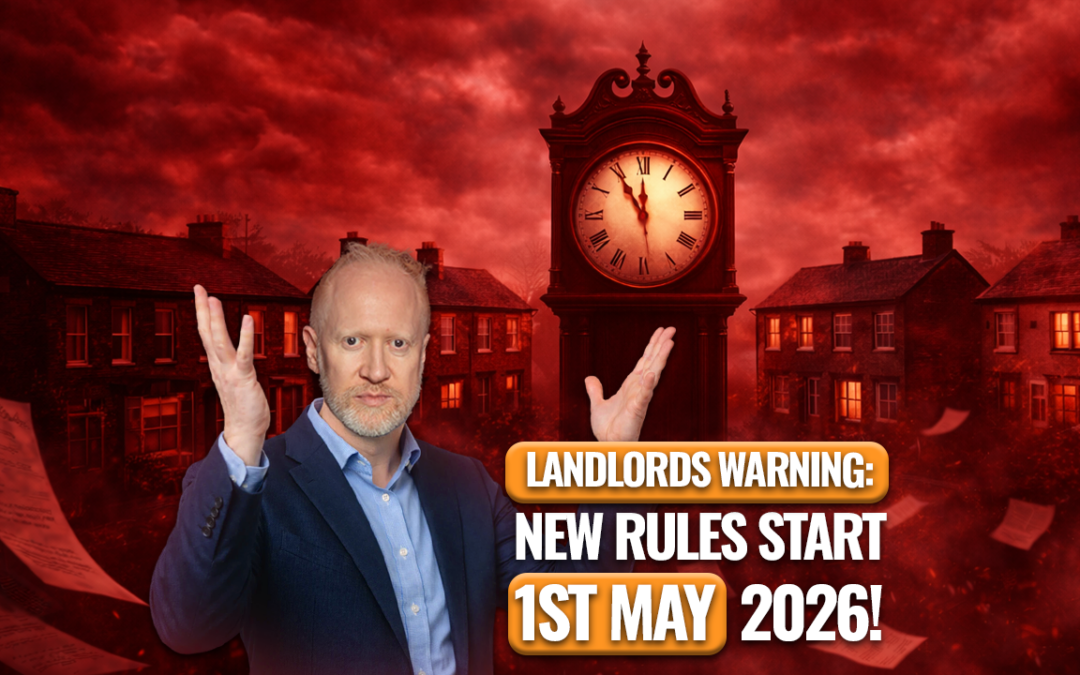In this blog, I want to share with you how I got started in property investing. It was back in 1995, and I’d just secured a job at Cadbury’s in Birmingham as a graduate trainee. I had gone to university in Birmingham. I did a four year combined honours in manufacturing engineering and business, and when I left university in 1994, I didn’t have a job. That was a real shock to me, because I’d got a good degree. I’d done lots of things at university, and I expected to get a good job.
Partly because of my two older sisters. One of them was working for Mars, the other was working for Procter & Gamble, both big companies, and I kind of expected that I would get the same thing. I realized the problem was I didn’t take enough action.
Taking the Necessary Action
In my final year, I had two dissertations, because it was a combined honors, and if I’m honest, I didn’t spend enough time applying for jobs. If you want to do something, you’ve got to take action, and I didn’t take enough. In fact, I only did seven application forms, and I didn’t get a single interview. You’ve got to bear in mind, the kind of companies I was applying to were people like Cadbury’s, Mars, Procter & Gamble, Unilever, big companies that have thousands and thousands of people applying every single year, to get the few graduate jobs they had. Remember, this was 1994, ’95 when I was doing these applications. This was before the internet. This was paper forms you had to fill in. You had to write questions and answers, such as describe a time when you’ve solved a difficult team challenge, and you’ve kind of got to make something up that sounds good and fits in the box provided. You have to have neat handwriting. These forms take hours and hours to do, so that’s why I didn’t do many.
With a bit of arrogance, I assumed, I’ve done lots of university so I should get a good job. But the reality was, with all the competition I didn’t, and so when I left university in ’94, it was a bit of a shock.
I got a job in Birmingham. I was still living in my student house to keep a nice cheap rent. I had no money. I couldn’t go home to my parents, because they had moved to the south of France. Nice to visit, but not very practical if you’re looking for jobs. So what I did was I thought, well, I’m going to get a job, and I made a decision. I made a commitment, and I believe, if you want to achieve anything in life, you’ve got to really commit to do it. You see, I hadn’t really committed to getting a job. I wanted a good job, but I hadn’t taken the necessary action.

I committed. I’d spent all this time at university. I bought into the dream of getting a really good job and working my way up the corporate ladder, becoming a director one day, maybe, and that’s what I thought I wanted to do. But it wasn’t going to happen if I didn’t have a job, and doing a not very good job that I was literally doing just to earn money, was enough momentum and fuel for me to say, you know what? I am not going to be satisfied with doing a crappy job. I want a good job. I want to use my brain, use my talent, and move up a corporate ladder. So what I did was I took massive action. I did lots of research. I was working during the day to earn money, evenings and weekends. I was spending pretty much all my time just researching and applying for jobs. I filled in 77 job applications. Remember, there’s no copy and paste. It’s all handwritten forms.
Because I’ve taken massive action, I got much better results. I actually got seven first stage interviews and I got four second stage interviews, and finally. two job offers. One of the jobs was in Boots, as part of their head office to do a finance programme. I thought finance would be a good career to have, but then I also got an offer to work at Cadbury’s to do manufacturing engineering. That’s really what I’d done my degree in, and that’s what I thought I’d love to do. So I took maybe the easier option. I stayed in Birmingham because I knew people here. It was within my comfort zone, and this was a dream job for me.
“I made a commitment, and I believe, if you want to achieve anything in life, you’ve got to really commit to do it. You see, I hadn’t really committed to getting a job. I wanted a good job, but I hadn’t taken the necessary action.”
Moving into My Next Property
When I got there, I just worked really hard. I really wanted to impress, and when I finished the graduate programme, sure enough, I was quickly able to get a senior management position. I moved around the business, did lots of different things, and it was all fantastic. Now, as soon as I got my first job in 1995, I bought my first home, and it was the next province, if you like, next area, just next to Bournville, called Selly Oak, just in the proximity of Birmingham University. That’s where I’d been studying, I knew the area really well. I used my landline phone to ring the number from the estate agent board, it became the first property I looked at, and it was the one I put an offer in.
Now, I don’t suggest you do that. When you buy property, you want to look at lots of property to really get a good deal, and I thought I’d got a good deal, because it was on the market for £49,000 and I negotiated £500 pounds off the price. A young couple had bought it. They had been to university. They’d worked there in the area. They’d improved the house. It was lovely, compared to the not very nice student house I was in, so all I was concerned with, this was a lovely house. I could just about afford it in my salary, so I bought the property. That’s why I bought my first one, because I needed somewhere to live.
It was a two bedroom, two reception room house, and I actually rented out two of the rooms to my friends who were still studying at Birmingham University. The rent that they paid me pretty much covered all of the mortgage and the bills, so I was kind of living for free in my house. I wasn’t spending a lot of money, because I’d been used to not earning a lot and not living on a lot of money, so I was saving lots of my salary. I’ve always been quite entrepreneurial. I had a part-time business I was running, which was promoting student nightclub events in Birmingham. It’s a great fun business to do at that age. It was in the evenings and weekends, so I could do my work here, do a great job for Cadbury’s, and evening and weekends, I’d do the club stuff. I had all this money building up in my business bank account, and actually, my bank manager at the time said, “Hey, Simon, what are you going to do with this money?”. I said, “Well, I want to do some investing.” So he arranged for one of the top financial advisors, from that particular bank group in the Midlands, to come and sit down with me in my home and talk about investments.
He helped me set up a pension. He got some insurance in place, which I didn’t have. I told him I wanted to invest this money and told him I wanted to move to a bigger house.
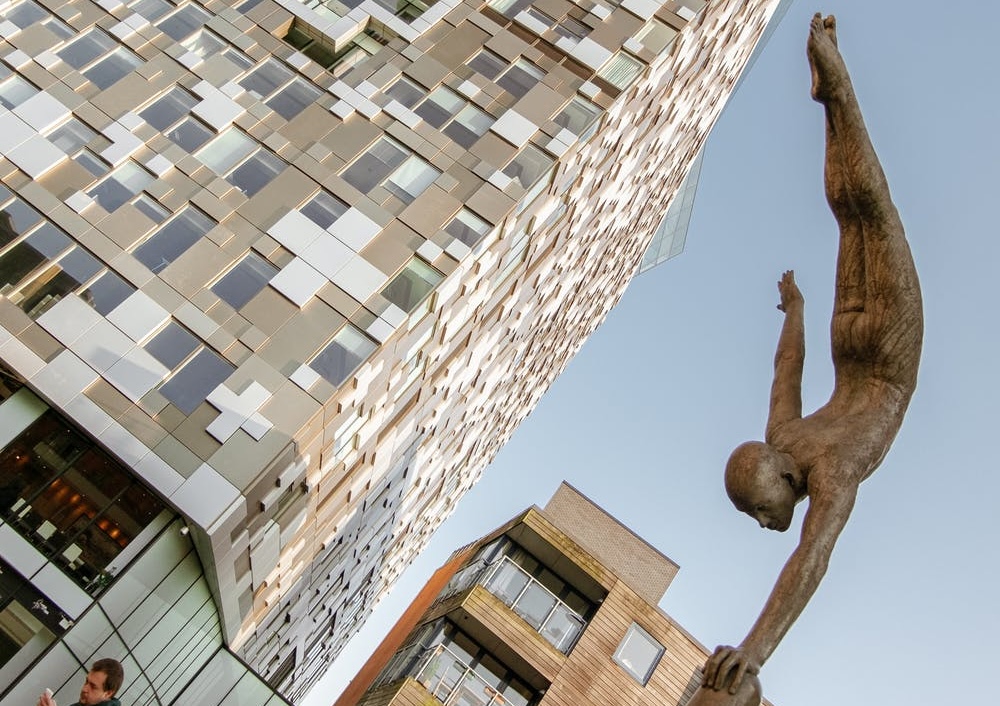
You see, living in Selly Oak in the studio was good for a couple of years, but I got a bit bored of that. I wanted to move into the next area called Selly Park, which was closer to work, because I was walking to work every day, and I wanted a bigger house. I wanted a garage, things my first house didn’t have. So Kevin said, “Okay, how much is the one you live in now? What’s the mortgage?” We worked out what the equity was. We worked out how much money I had in my savings, and then he looked at how much I could buy a new house for. He said, “Simon, I’ve got some great news. When you buy your new house, the price you’ve told me, based on your savings, if we sell this house, you’ll have enough money to have a very small mortgage on your next home, and the sooner you pay off your mortgage, you’ll have a lot more money in later life.” Now, I want to be really clear here, that that’s actually really good advice if you only ever want one property, i.e. your own home. If you can pay your own home mortgage down as quick as possible, you’ll have a lot more money in later life. However, that’s not what we as investors do. That’s a homeowner mindset.
I told him I didn’t want to do that. What I want to do is I want to keep this house we are in right now, and I’m going to move out with my friends. We’re going to buy that one to move into, and I’m going to rent this one out to students. Kevin was a very smart guy. He had these kind of half moon glasses that doctors and professors have. He said to me, “So hang on a minute. You want to move out of this house, move into another one, and rent this out to students?”. I said, “Yes.” And he replied, “That sounds awfully risky to me.”
Now, imagine if you were me, imagine you were sitting there on a sofa, and this top financial advisor from this bank says what you’re about to do is really risky. Would you question yourself? Well, I did. I thought, am I doing the right thing here? I remembered meeting my student landlord, who actually was someone who I had sat down with, had a cup of tea, and he explained how houses worked. I thought, well, having this house that gives you passive income might be a really good thing to do. I had a few sleepless nights. I thought, no I know I can rent this house out, and I was worried about all the things that could go wrong. It’s good to be aware of the issues that could happen, but very often, people have all this fear of things that could happen that are never actually going to happen at all. So I finally decided, no, I’m going to rent this house out. I’m going to buy another one. So that’s what I did, and I moved into the next one.
Cadburys vs Property Investing
I very easily found a group of students, because I knew lots of students, to move that house. All the things I was worried about, you know, are they going to pay me? Are they going to trash the house? None of these things were problems. The money came in every single month. I didn’t spend much time looking after it. I went once a month to check everything was okay, and it was really easy, and it was a great first experience for me getting into property. I still own that house that I bought for £48,500 back in 1995. I’ve re-mortgaged it many times. I’ve taken lots of money out to buy other properties. That house is now worth at least £350,000. It’s doubled, doubled again, and almost doubled again in the 26-year period that I’ve owned it. So I know how powerful property can be, and I just want to encourage you to educate yourself, learn about property investing, because it’ll be incredible for you too.
Now here’s the real light bulb moment I want to share with you. At the time, in about 1998, I was probably earning about £1500 pounds a month from Cadbury’s. That was my graduate salary. The house that I was renting out, this small three-bed house, was making me a £500profit a month. So I’ve got a house making me £500 pound profit that I popped into once a month to see if everything was okay, and I’ve got a job giving me £1500 pounds. I’ve got to be here 40 hours a week for 48 weeks of the year, and I’m only earning £1500 a month.
So I thought, hang on a minute. There’s something wrong here. I should get some more of these houses. That’s what I started to do, I bought some more houses. I got some more Single Lets, and by 2001, I had enough income coming in to replace my Cadbury salary. Enough for me to be convinced that, yes, I could do it in property. I had enough to cover my costs, and I made the decision to leave work.
I loved working at the company. There were some incredibly fantastic people, and, obviously, an amazing product as well. I still have very fond memories of working there, but I wanted a bit more freedom. I don’t know about you, but I like the idea of choosing when I go on holiday, not having a limited amount of time. I now spend time doing this, educating, teaching, and helping other people to do what I did, but much quicker than me. I gave my notice in 2001 and it was a day to remember. I remember walking home a bit scared, but also I was feeling completely elated, and very free. It took me two more years to 2003, when I completely replaced my former income, and I thought, yes, I’ve done the right thing. At that time, I’d been investing in property for eight years. I’d done pretty well, but also, I’d made lots of mistakes. You see, I was learning the hard way, through trial and terror, and I thought there’s got to be a smarter way of doing this. I went online to see if there was some sort of group I could go to, some sort of property group, people I could connect with and learn from, but there was nothing. So, in 2003, I set up the very first networking event anywhere in the UK, specifically for property investors, and I called it the Property Investors Network. It was a small meeting, very close to here in Birmingham, with me and a small group of people who were interested in property, and it’s grown with 50-plus meetings around the country. We’re now actually growing around the world as well. So if you’ve not been to a pin Meeting, I encourage you to come along, check it out for yourself. In fact, if you’ve never been, use the code ‘BLOG’ to attend your very first pin Meeting for free.
It’s my gift to you, because I want to encourage you to educate yourself and get around like-minded people. It’s much easier to build your property portfolio quickly and successfully and avoid the expensive mistakes that most people make. To be really clear, people lose money in property. They make silly mistakes, and often it’s because they don’t know what they’re doing. One of my favourite sayings is you don’t know what you don’t know, so I encourage you to have an open mind. Come along to the pin Meetings. Get my book, “Property Magic”, it’s an Amazon number one best seller. Get a copy of that. You can listen on audio as well if you want. There’s so much free content. We’ve got the ‘Property Magic Podcast’ as well. I want you to be a successful investor, and maybe you might want to speed up your journey. You might want to come and do some of our paid training, where we can help you get results much quicker rather than trying to learn everything for free.
I hope you’ve enjoyed this blog. Property investing is not easy. Sometimes people think it’s a get rich quick scheme, you make all this money quickly. Well, that’s not the case. You can make a lot of money in property, but I’m here to tell you, it takes time and effort. It’s not a get rich quick scheme, you get fantastic results after massive action. If you want to be successful in property, make the decision, commitment, educate yourself, take lots of action, and I hope the information we provide free of charge is going to help you. So, as ever, I encourage you to invest with knowledge, invest with skill.

